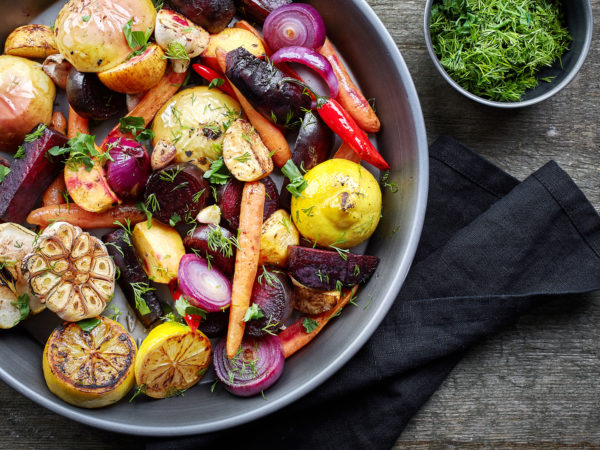No Cancer Prevention from Vegetables?
I understand that a big new study found that eating fruits and vegetables doesn’t protect against cancer. If so, how will this change the dietary strategy you recommend?
Andrew Weil, M.D. | May 14, 2010

You’re referring to an investigation published online on April 6, 2010, issue of the Journal of the National Cancer Institute. The study tracked the eating habits of more than 475,000 Europeans for nearly nine years and found that the effects of eating fruits and vegetables on cancer prevention were minimal. This is not big news. Earlier studies have come to similar conclusions, but cancer isn’t the whole story and the findings certainly don’t mean that you should give up on fruits and vegetables. Research has shown that individuals who consume five or more servings of them daily have a 30 percent lower risk of heart disease or stroke than do those who eat fewer than 1.5 servings per day. Similarly, increasing intake of fruits and vegetables has been shown to reduce blood pressure.
In an editorial accompanying the study Walter C. Willett, M.D., chairman of the department of nutrition at the Harvard School of Public Health, emphasized the proven beneficial effects of fruits and vegetables on prevention of heart disease but also noted that the European study didn’t look at the effects of specific nutrients on cancer risk. He pointed out that a number of studies have shown that lycopene from tomatoes may lower the risk of prostate cancer. What’s more, he explained that exposure to some cancer risks in childhood or early adult life (such as ionizing radiation) may be offset by antioxidants present in fruits and vegetables eaten in the same period.
Dr. Willett concluded that the current focus of cancer prevention should be on reducing smoking and curbing obesity. The latter appears to be as great a cancer risk as smoking. I agree.
I believe you can benefit from regular consumption of cruciferous vegetables such as broccoli, cauliflower and cabbage, which contain a cancer-preventing compound so potent that it is being investigated as a chemotherapy agent. I also continue to recommend eating berries and other brightly colored fruits and vegetables for their protective phytonutrients and antioxidants.
Other beneficial nutritional strategies include reducing your intake of animal fats in general and red meat and dairy products in particular – this could help control any cancer-promoting inflammation in the body. Stay away from refined sugar and heavily refined carbohydrates because of their effect on insulin production and insulin-like growth factors, which promote inflammation and cell proliferation.
My bottom line: fruits and vegetables should remain a mainstay of your diet. They’re good for you.
Andrew Weil, M.D.










